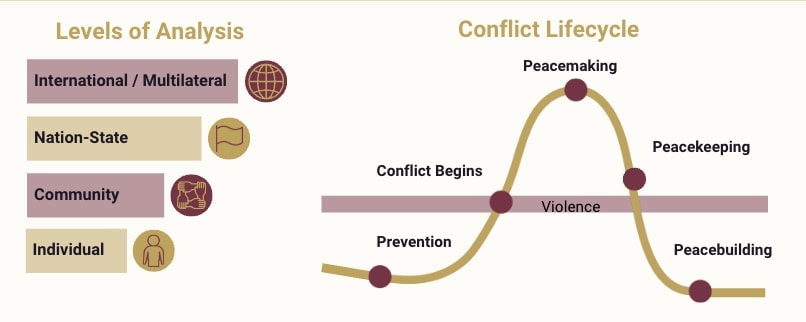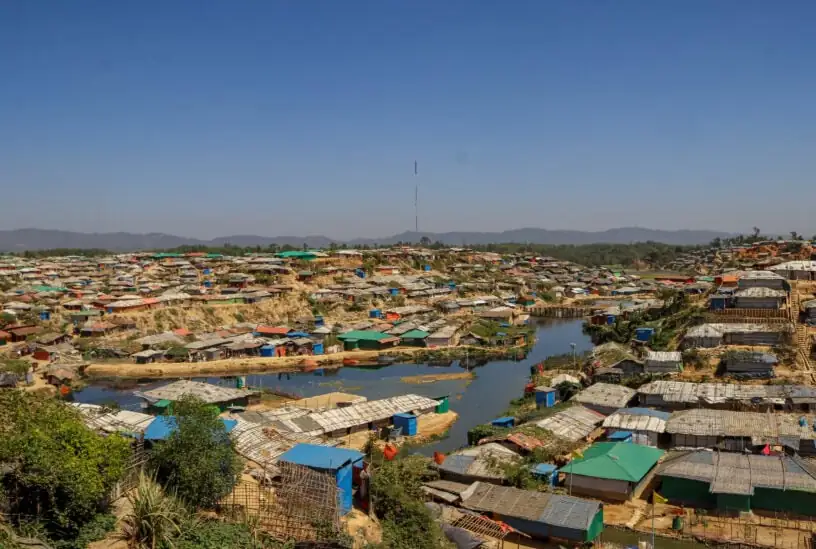Portfolios
Explore our Portfolios

Complex Conflict Resolution
The Complex Conflict Resolution (CCR) portfolio promotes positive, sustainable peace across the globe through rigorous research and analysis on ongoing inter- and intra-state conflicts as well as best practices in the field of peacebuilding. Through conflict mapping and decentralized approaches to peace, CCR prioritizes a solutions-forward approach to conflict resolution that engages stakeholders at all levels of analysis. CCR’s initiatives takes a holistic, interdisciplinary approach to peace by addressing all phases of the conflict lifecycle from prevention to peacekeeping and peacebuilding.

Practitioner Focused
CCR is a resource for practitioners, scholars, and decisionmakers at all levels, from community peace work to multilateral diplomacy. Through engagement with emerging and foundational practices, CCR provides recommendations for diplomatic and localized conflict resolution as well as tools for peacebuilding efforts, emphasizing the role of youth and women in conflict resolution.
Globally Engaged
Producing rigorous analysis of conflicts around the globe, CCR aligns itself with an intersectional approach to peace building. By engaging with local experts to curate recommendations and projects, CCR acts in the best interests of all parties to a conflict. CCR is committed to amplifying traditional interpersonal practices and their integration with state-level diplomacy techniques
Complex Conflict Resolution welcomes inquiries from prospective experts for contributions and partnerships in line with the goals of the portfolio. Please reach out to Hayley Stone at [email protected]
Complex Conflict Resolution Initiatives
Integrating Sustainable Peace
Israel-Palestine Roadmap
Global Rohingya Initiative
Post Conflict Pathways
PCP is a dual-portfolio project within Complex Conflict Resolution and Mass Atrocities and International Law. PCP prioritizes innovative approaches to post-conflict contexts, including reparations for Ukraine and Syria as well as post-war recovery and peacebuilding efforts for conflict-affected communities


